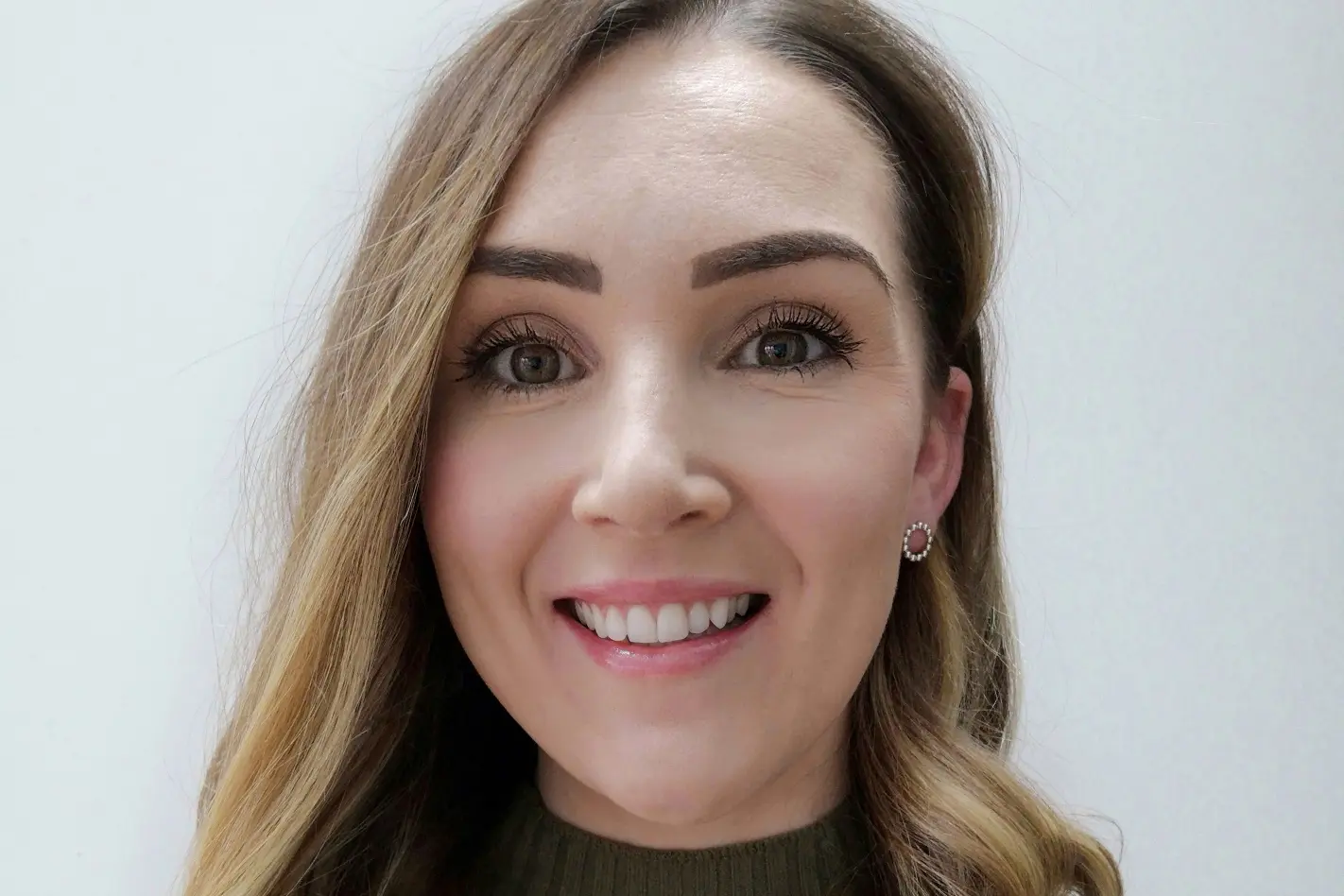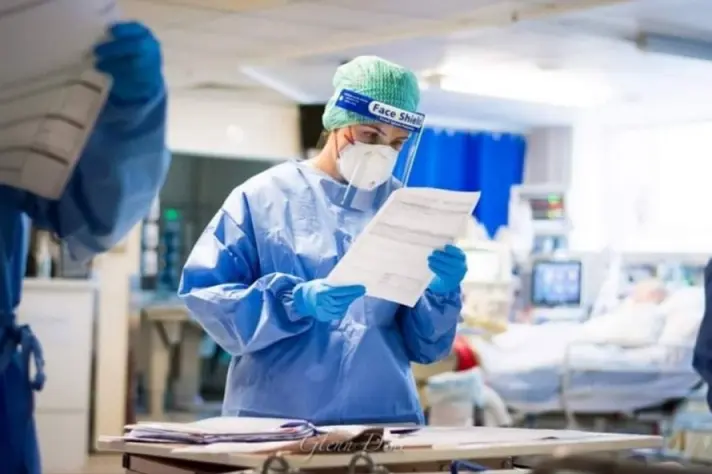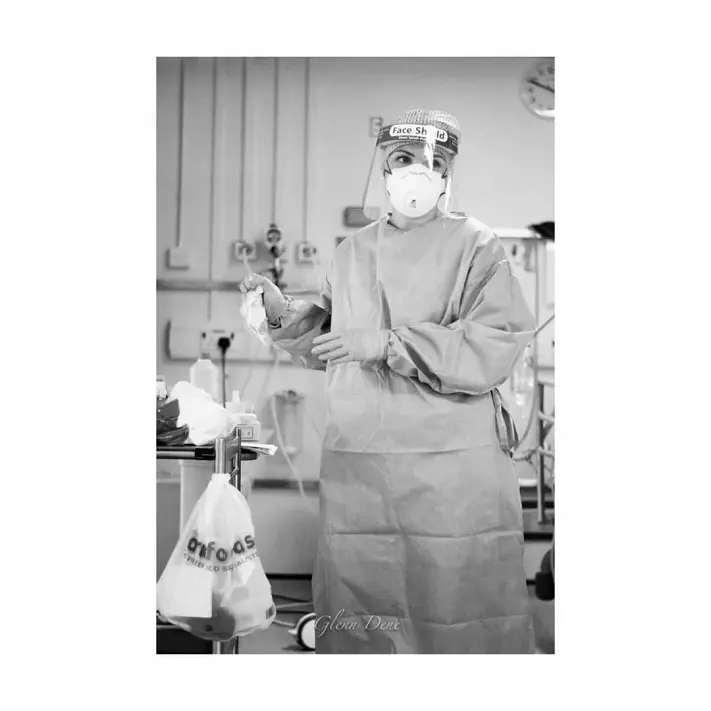25th January 2021
A Voices blog by Sam Williams, Flying Start Health Visitor at Aneurin Bevan University Health Board, on her experiences of health visiting on different COVID-19 frontlines.

Sam Williams, Flying Start Health Visitor , Aneurin Bevan University Health Board
My experiences of working as a Health Visitor on the different “frontlines” of the COVID-19 pandemic can best be summed up as “the horror, hope and future of healthcare” – all different, but all equally important.
During spring 2020, Aneurin Bevan University Health Board (ABUHB) was the epicentre of the COVID-19 outbreak in Wales. Approximately 30% of health visitors in ABUHB were redeployed to assist with adult services in crisis. Despite being a paediatric nurse, I requested to relocate to adult ITU due to previous experience. Health Visiting and Critical Care Nursing demand similar expertise: assessment, communication and crisis management to name but a few. Despite incredible support and appreciation from the team, those weeks in ITU will haunt me for the rest of my life. This was a war against COVID-19, and the number of deaths indicated we weren’t winning. Returning to health visiting also had its challenges; changes in policies to grasp and a caseload that required re-assessing as quickly and efficiently as possible.

Sam Williams, Flying Start Health Visitor , Aneurin Bevan University Health Board Credit photo source: Glenn Dene, all photos used by iHV with permission
Skip forward to January 2021: I receive another ‘call to arms’ email requesting redeployment or to offer additional help to support staff in ITU. Fortunately, redeployment was not an option this time; Health Visiting Senior Nurses and Welsh Government deemed our service “critical” to the lives of babies and children. I was relieved – at ground level each week, I was presented with new challenges: domestic violence disclosures; developmental delay; emergency food bank supplies; and almost half of my caseload prescribed anti-depressants. Hence, I was extremely grateful that lessons were learnt from the first wave of the pandemic. So on Sunday, I arranged to work additional hours on ITU. This time I felt more prepared for what I would encounter, but the anxiety remained the same. What I saw was the “horror” of the pandemic – exhausted ITU staff working tirelessly to save lives battling against COVID-19. Despite this, their support and appreciation towards me remained the same.

Sam Williams, Flying Start Health Visitor , Aneurin Bevan University Health Board
The following day took me to a different frontline of the pandemic. At the mass vaccination centre, I offered my skills to administer the vaccine – the frontline of “hope” for this pandemic. I witnessed fellow health visitors, dental nurses, psychologists, army medics, to name but a few, all working additional hours for one purpose. An overwhelming sense of pride filled me to be part of it. Health visitors are Specialist Community Public Health Nurses which means they are extremely knowledgeable about vaccines, and are therefore ideally placed to deliver them. However, the health visitors’ breadth of skills are needed most in providing a vital safety net which other professionals cannot.
Working in these diverse clinical areas demonstrates the vulnerability of patients within frontline services. A patient in ITU in prone position on full support and likely to die; an 88 year old receiving the vaccine; both are extremely vulnerable for different reasons. Yet, one of the most overlooked clinically vulnerable persons during the pandemic was facing me the following day on my return to health visiting. I visited a mum with a young baby – she is isolated from her family and peers during lockdown and has disengaged with the perinatal mental health team and GP services. I become aware of subtle indications that her mental health is deteriorating and the bond with her baby was suffering. I used my skills to listen to her and she started to tell me about how she was feeling. After some discussion, she agrees to complete an Edinburgh Postnatal Depression Scale (EPDS), her responses score 23 on the scale suggesting severe postnatal depression. Her tears flow; she tells me her negative thoughts about herself and her baby, she feels alone and afraid. With some reassurance and advice, she agrees to engage with professionals and can recognise the importance of bonding with her baby. Afterwards I make a joke, she laughs and tells me that she feels like “a huge weight has been lifted” and how she wants to enjoy her baby. We make a plan to meet again for ongoing support and I let her know where to get urgent help if she needs it. Persistent postnatal depression and poor attachment can have a significant impact on children’s development and potential repercussions for their future holistic health and wellbeing.
On this 3rd day, I had used my skills as part of the equally important, but easily overlooked, frontline of healthcare which is the “future”. The results of health visiting are not immediate like saving lives in ITU, or easily measured like administering vaccines, but they make a difference that can last a lifetime. The safety net which health visitors provide is not only for parents with postnatal depression but for a variety of reasons. In my average working week, I will be: supporting families experiencing domestic abuse or those with substance misuse problems; providing safer sleep information and supporting parents with preterm babies; identifying children with underlying medical and developmental conditions; as well as supporting families to manage all the common childhood illnesses that haven’t gone away.
Alongside the “horror and hope” of the pandemic, these babies and children are the “future”; it is crucial that policy makers are aware of the vital and unique role that health visitors have alongside the different frontlines. We must advocate for the “future” and ensure all families are aware that they are not alone and that health visitors are there to help and support them.
Sam Williams, Flying Start Health Visitor, Aneurin Bevan University Health Board
Credit photo source: Glenn Dene, all photos used by iHV with permission

